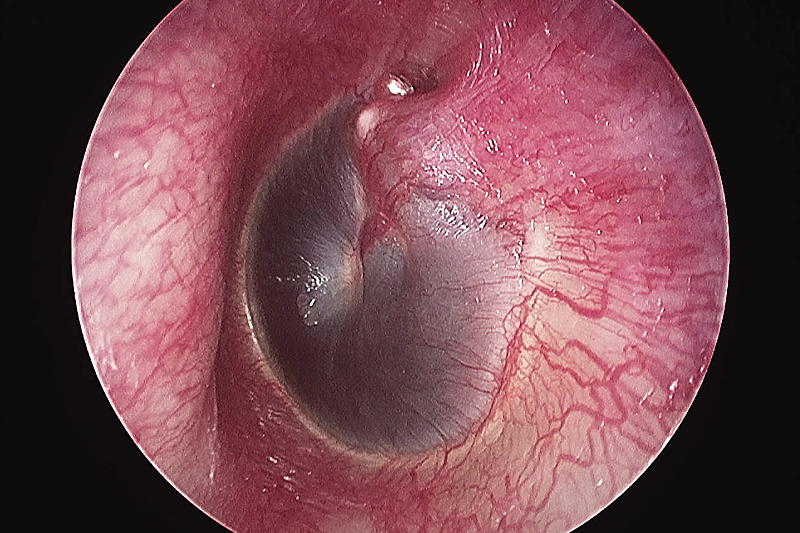About hemotympanum
Hemotympanum or hematotympanum, refers to the presence of blood in the tympanic cavity of the middle ear.
Hemotympanum causes
The most common causes include therapeutic nasal packing, epistaxis, clotting disorders, blunt trauma to the head and skull base fracture. For patients with epistaxis, dysfunction of the Eustachian tubes is thought to be the reason for spontaneous hemotympanum. Retrograde flow would be the cause in this situation with nasal pressure leading to blood reflux up the Eustachian tubes. Disorders of coagulation, in association with prescribed anticoagulants or hematologic disorders such as leukemia may present with hemotympanum. Vascular tumours of the middle ear such as paraganglioma (glomus tumors) should be included in the differential diagnosis. Hemotympanum may be detected in the presence of chronic otitis media. Evidence suggests that secretory otitis media and hemotympanum may be different phases of the same disease process.
Spontaneous hemotympanum
Idiopathic or spontaneous hemotympanum is an uncommon disorder characterized by a black-blue tympanic membrane discoloration as a result of recurrent hemorrhage in the middle ear or mastoid in the presence of Eustachian tube obstruction.
Evaluation
Initial evaluation of a blue middle ear mass includes an audiogram and CT scan with intravenous contrast. CT may identify congenital vascular malformation or bone erosion due to chronic otitis media or tumours. A magnetic resonance imaging (MRI) scan is useful in distinguishing hemotympanum from a vascular tumor.
Treatment of uncomplicated hemotympanum
Generally the causes include temporal bone fractures, nasal packing, anticoagulant therapy and coagulation deficits, or chronic otitis media. The treatment of an uncomplicated hemotympanum is usually conservative. Antibiotics may be prescribed for infection prophylaxis. A myringotomy tube may be needed for patients with persistent effusion to prevent long-term complications. Patients with spontaneous hemotympanum usually require review by an ear nose and throat specialist to assess for an underlying cause. If you have questions about hemotympanum contact an ear nose throat specialist for specific management.




